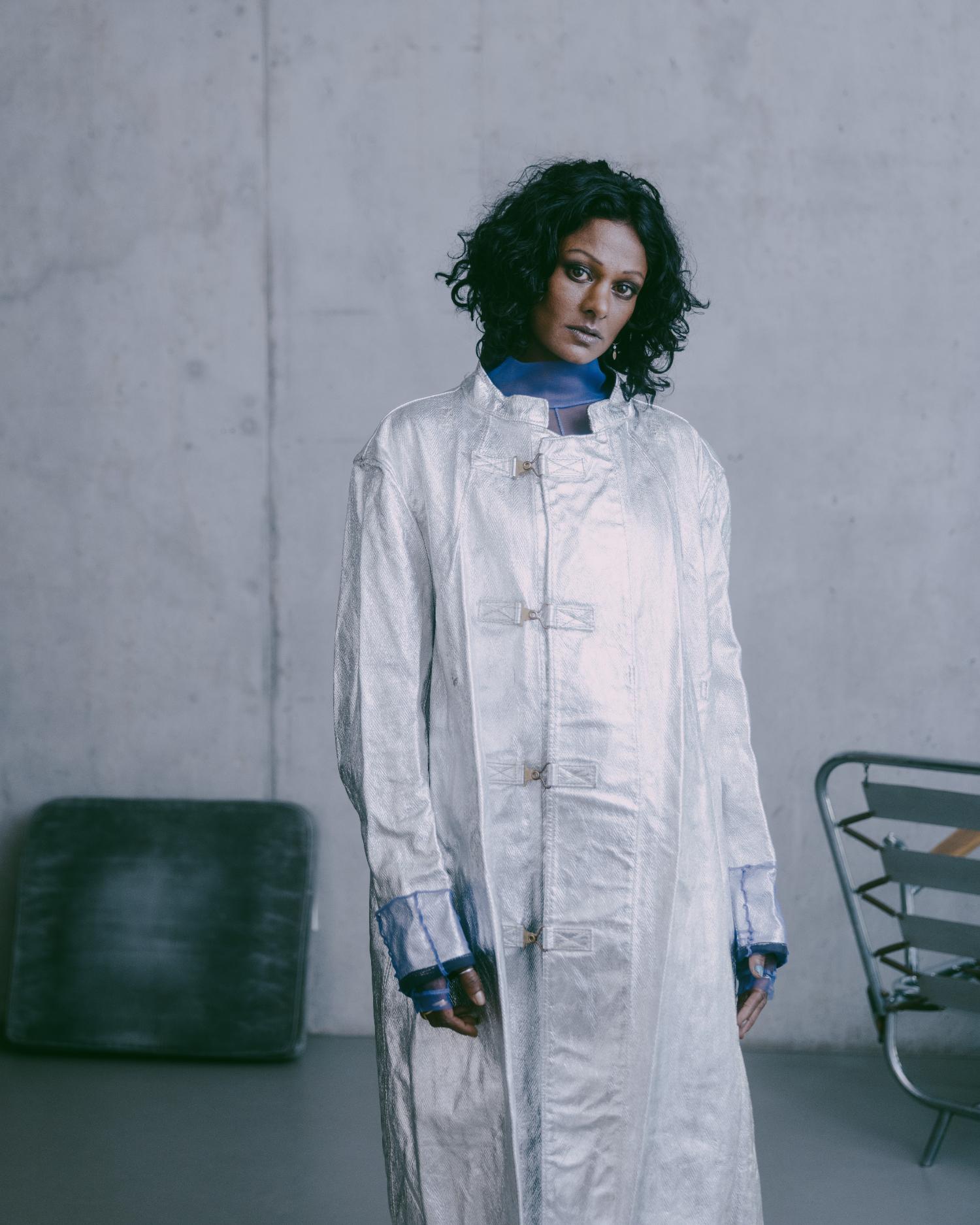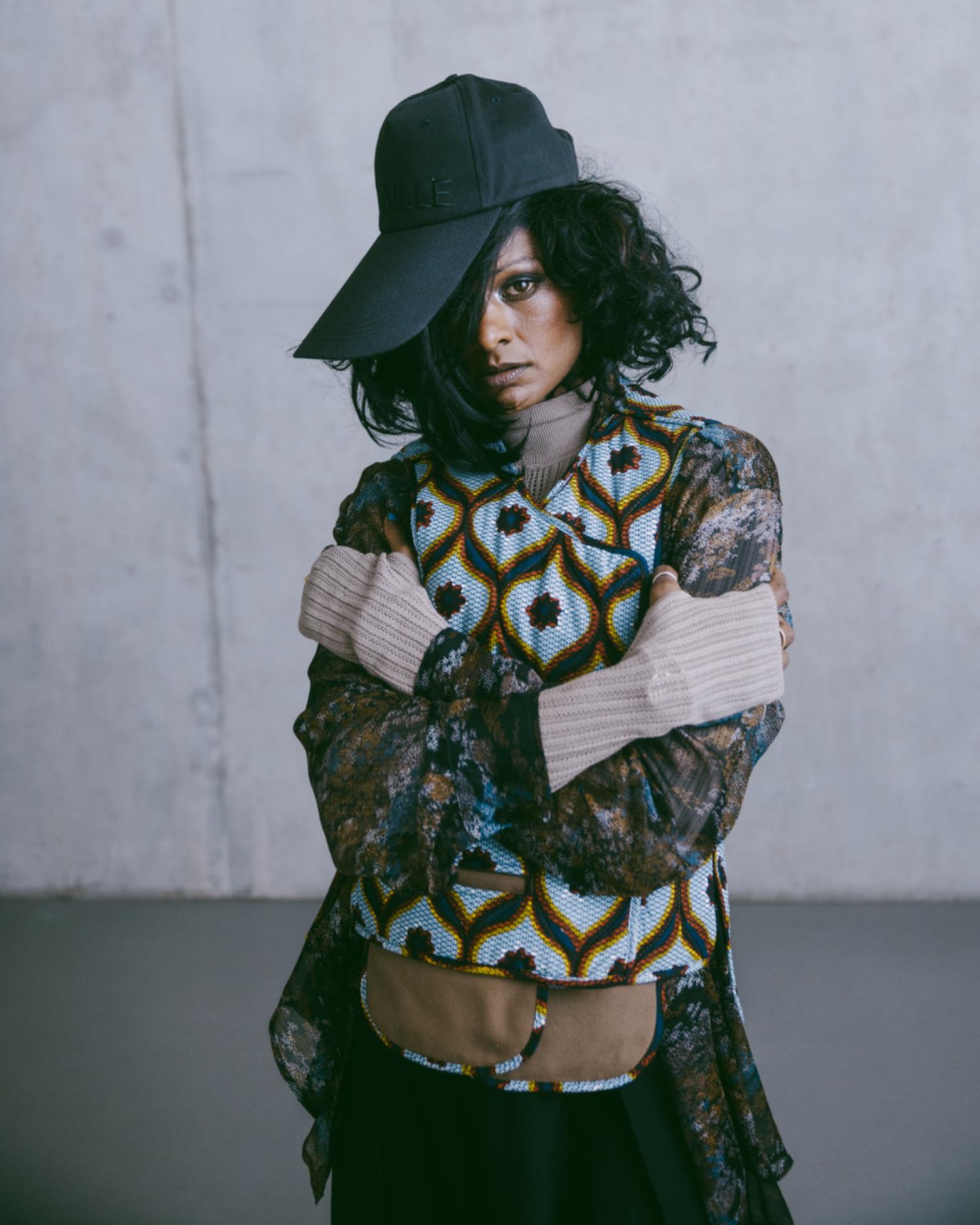Trumpets, Chaos and Survival – Perera Elsewhere in Conversation with FAULT

Berlin-based, UK-raised musician, producer, DJ, and trumpeter Perera Elsewhere has never been easy to pin down. Dubbed the pioneer of ‘doom folk’, her work has always embraced contrasts: experimental yet emotive, cerebral yet deeply physical. With her fourth album Just Wanna Live Some, due out on 24th October 2025 via Friends of Friends, Perera expands her sonic palette once again, weaving together introspection, defiance, and playfulness. The new record follows recent singles NGL and Visions featuring Neven, a continuation of her collaborative spirit and willingness to push beyond genre boundaries. Speaking with FAULT Magazine, Perera Elsewhere reflects on her creative process, the influence of Margate, her relationship with collaborators, and why survival, community, and chaos are as integral to her sound as any instrument she plays.

FAULT Magazine: What inspired the title Just Wanna Live Some?
Perera Elsewhere: I guess it’s the wish not to get too heady about things. I make some really emo music but also some really fun stuff, and in the end, life is here to be lived—simple as that. I saw a book called How Not To Die the other day, some nutritional guide I didn’t read, but I realised its title is similar to what I’m saying with my album title. I’m just trying to stay positive and get out there to do something of value. It’s also addressing a bit of FOMO, I guess. That yearning to live and experience things is what keeps us alive—especially in this current era where there’s so much information that we often feel swamped and helpless. Simplifying it all, just trying to live each day as you can and doing something that feels valuable to you, is almost a survival philosophy.
FAULT Magazine: With Just Wanna Live Some, where do you feel your sound has evolved most compared to your earlier albums?
Perera Elsewhere: I think it’s fuller and louder—a more developed version of the blueprint. My first solo album Everlast was almost like deconstructed pop, and now I feel like I’ve reconstructed it, using some of the same elements but ending up with a different result. I think there’s a consistency to my sound and voice, and I hold it together through repeated use of certain elements. My trumpet, for example, is more and more present.
FAULT Magazine: Can you talk us through how Margate and its environment influenced your songwriting process?
Perera Elsewhere: Being invited to work in a studio I didn’t know really helped me focus—even though it takes a day to get set up. I valued the time I was given and have huge respect for Stephen Prah for setting up Prah Foundation. I felt blessed to have that chance and wanted to use every minute. I made a few tunes in a week, two of which are on this album. The Hohner Pianet I found in the studio shaped the style of NGL, which I wrote and recorded there. Using a vintage analogue e-piano from the ’70s called for real chill songwriting—a whole vibe came from that. Just Wanna Live Some is another track I wrote there, using a Korg synth. I’ve got a bunch of analogue synths and an organ in my Berlin studio, but I don’t always use them. Being in Margate for a limited time, having access to them only for those days, pushed me to make the most of them. As I always say, limitations are great for the creative process.
FAULT Magazine: How do you balance your own vision with the unexpected directions collaborators bring?
Perera Elsewhere: I think I find it really easy with vocalists, because in the end the producer—me—has a lot of work and makes a lot of decisions. Producing Visions with fellow producer Neven was a far longer process of ping-pong sending, as she is a producer and I am a producer and the main vocalist. She was demanding more from me haha, which I kinda enjoyed. It makes for a more unpredictable result. Neven put in the 80s arpeggiated bass, something I rarely use on that kind of track, but again, that is why you collaborate—to mix it up and make stuff you wouldn’t expect. I’ve known Neven for a long time, so that helps.
FAULT Magazine: Can you talk through your inspiration and headspace when writing Fck Le System?
Perera Elsewhere: After Andy S wrote to me on TikTok—she saw I played another tune of hers on Boiler Room—I sent her a beat to record on, a quite rudimentary soca beat. She recorded a verse in Abidjan, Ivory Coast, where she lives. I cut the hook Fck Le System from part of her verse, created a new part with trumpet stabs, and repeated her Fck Le System vocals, adding a few vocal doubles and ad-lib elements myself. Arpeggiated trumpets are a feature of this track too. It’s a banging hook now! Big ups to Andy S for being such a committed artist. I truly believe in her and loved watching her process in the studio, especially on Time Will Tell when she recorded in my Berlin studio IRL.
FAULT Magazine: Your career has spanned from London’s grime and dubstep scenes to Berlin’s electronic underground. How have those early club experiences shaped the way you approach production today?
Perera Elsewhere: Yes and no! I love club music but I don’t really use DJ tools. I think my production is influenced by being a musician and by having grown up on UK club music and dub/dancehall/ragga soundsystems. We danced to Shabba Ranks and UK Apache as kids—that’s in our blood. I went to We Out Here festival last week, and it confirmed my musical existence to me, seeing so many others influenced by the same lineage. Sometimes Americans or others are shocked that I don’t listen to or know much about US hip hop, but we had our own thing—our own identity from the UK, the colonies, the Windrush, and the Hardcore Continuum. So why do we have to talk about Gucci Mane and Kanye? That’s not authentic to my upbringing. Soca and Bhangra are almost the same riddim, and we know that in the UK. Doubles with chana curry is the food version of that. We got the Chutney riddim in Jamaica from indentured labourers taken from India in the late 19th century, so actually these are the roots for us.
FAULT Magazine: Over a decade after your debut, what drives you to keep experimenting, even after receiving recognition for your unique sound?
Perera Elsewhere: Fear of being broke haha. I’m a full-time musician. Jokes aside, I love meeting different people through music and building connections all over the world. Despite the music industry being a real sh*tshow, I’ve met some incredible humans on this journey and made friends for life. Being a pure tourist is boring, so travelling through music is special. I can learn a lot if I surround myself with authentic people.
FAULT Magazine: What is your FAULT?
Perera Elsewhere: Impatience, even though it drives me to finish stuff. Chaos and ADHD-isms—I suffer from that, but it probably shapes my sound and makes me who I am, so I just embrace it.
Find more exclusive music interviews and cultural features by following FAULT Magazine on Instagram